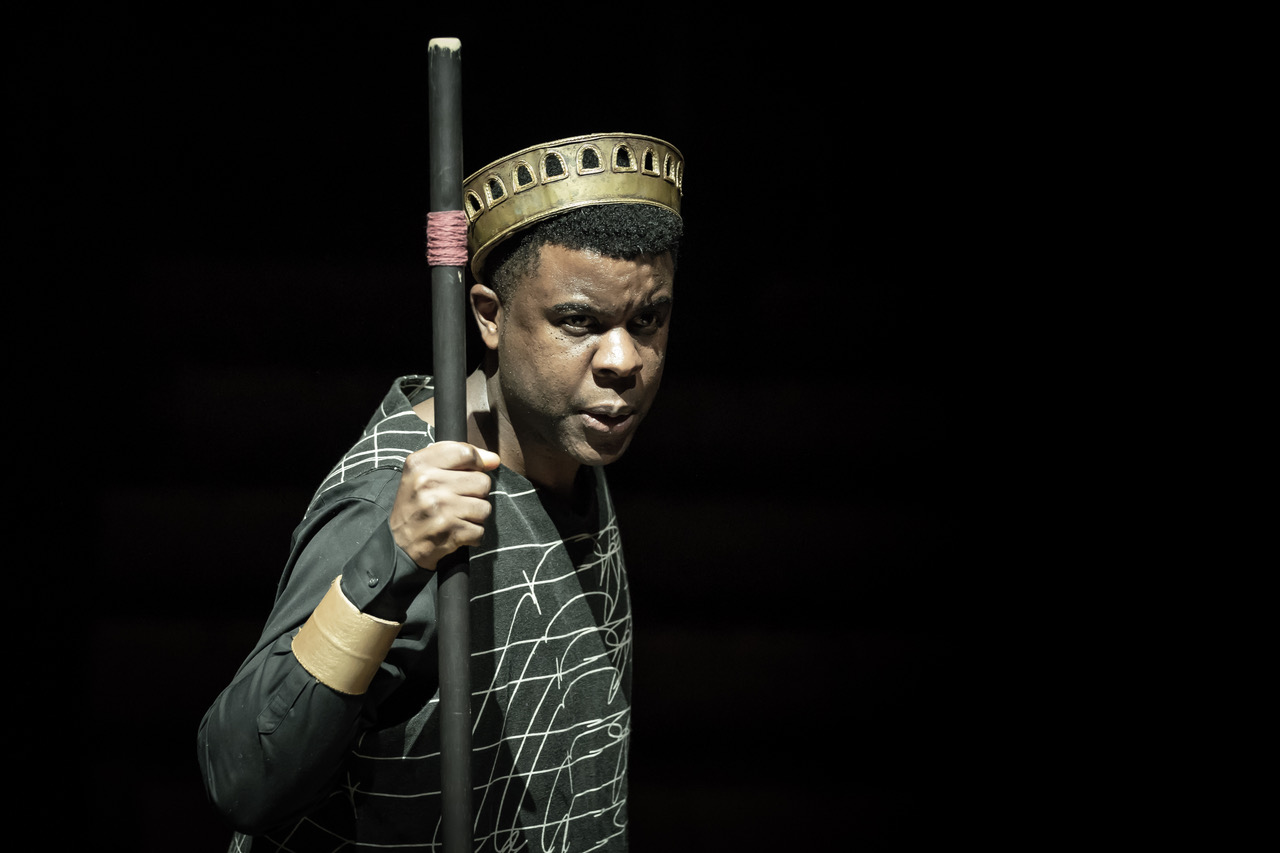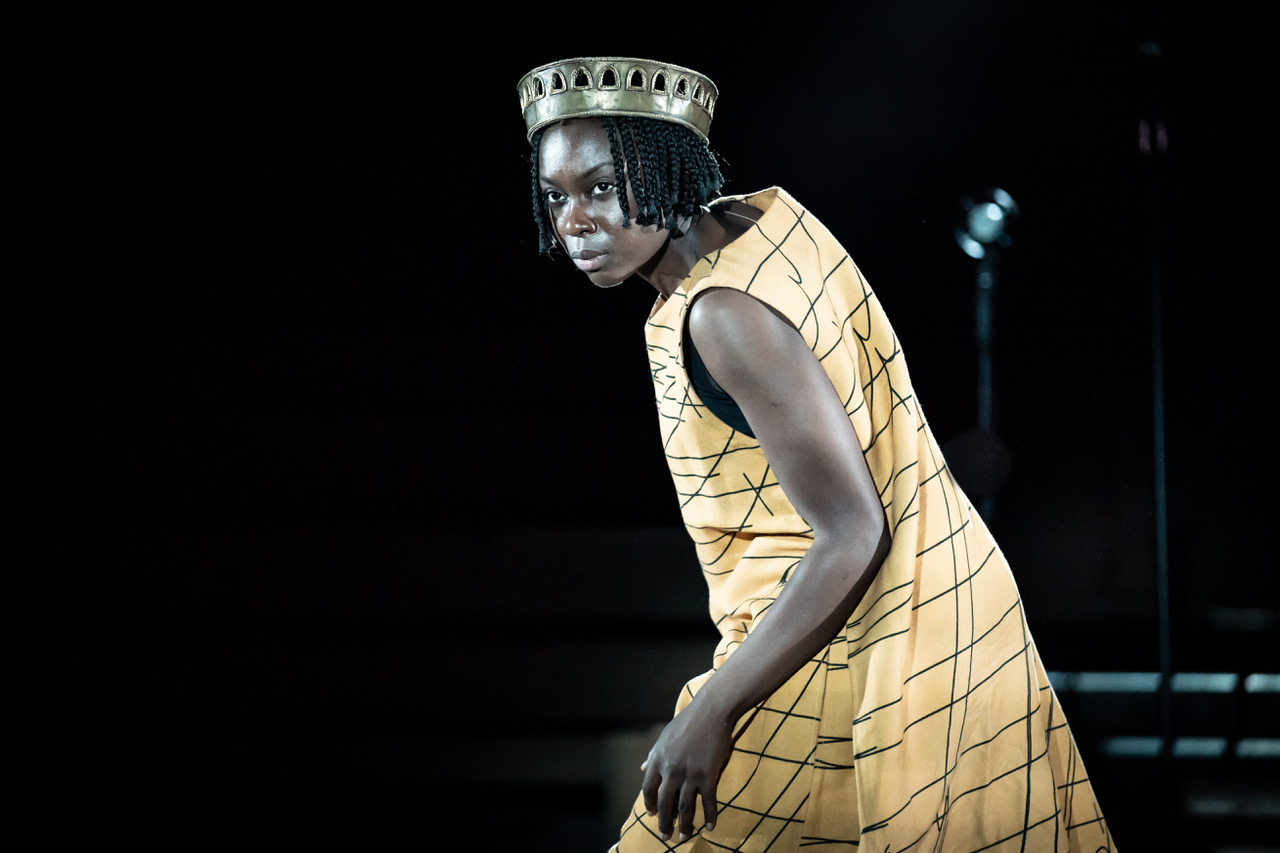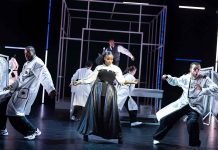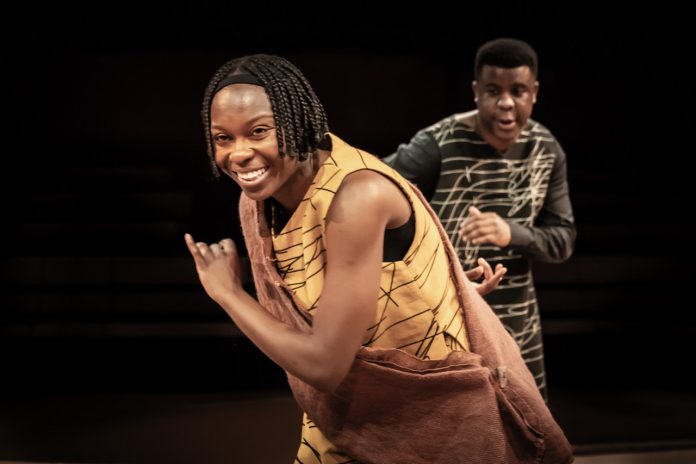Rock, paper, scissors. Eyes closed. Two collective deep breaths. The gathered audience probably weren’t expecting proceedings to kick off this way, but with Kwame Kwei-Armah at the helm, maybe they should have.
Changing Destiny is the latest in Kwei-Armah’s oeuvre as Artistic Director of The Young Vic, and whilst it may lack a little spectacle for audiences starved of theatre for so long, it still etches itself into memory.
Both actors meet the physical and emotional challenges of Okri’s script and Kwei-Armah’s direction
Taking its life from a 4000-year-old poem from ancient Egypt, called Sinuhe, seen by some as the unknown precursor of many legends that are part of the world’s narrative tradition, here playwright Ben Okri has clearly identified the poem’s uncanny ability to speak to our times.
Identity, immigration, social disorder, the mystery of power, changing fortunes, social climbing, the nature of exile and homecoming; all are explored here, in a swift, fertile and occasionally playful manner.

This playful tone is clear from the outset, as Joan Iyiola and Ashley Zhangazha decide who will play the lead, Sinhue, and who will play a variety of other characters, by virtue of rock, paper, scissors. Tonight’s performance sees Zhangazha take on the role of Sinhue.
Both actors meet the physical and emotional challenges of Okri’s script and Kwei-Armah’s direction, but it’s hard not to warm to Iyiola’s performance more. As she dons different garbs, and inhabits the other characters, her physical and vocal range is a delight. Balance is somewhat restored when Zhangazha is given moments of direct address, but tonight Iyiola is a standout.
The nature of Iyiola inhabiting a variety of characters doesn’t come without its flaws however. At times it was hard to keep track of who they are, and to some extent where we now are within the context of the story’s timeline, but these are minor concerns, because the play is always engaging.
Identity, immigration, social disorder, the mystery of power, changing fortunes, social climbing, the nature of exile and homecoming; all are explored here, in a swift, fertile and occasionally playful manner
The vivid and immersive soundscape, is contrasted by minimal set design, opposing pyramid structures are used to open up the stage and project visuals. At times I wanted more, but what I got was befitting of the play’s scale.
The highlight arrived towards the denouement, a vocal moment, spiritual in nature, harnessing loop pedals and chanting, which was reminiscent of the Silly Games’ sequence in Steve McQueen’s Lover’s Rock film. The moment is holy, uplifting and transformative, a reminder of the transaction and transference of energy that is the unique heritage of theatre.

The curtain call is graced by Kwei-Armah (who admits this to be unusual). He thanks the collective team who have made the production, and reopening possible, then the audience for being there. But the biggest cheer is aptly given to Iyiola, who is celebrating her birthday.
As the audience sing a stirring rendition of Happy Birthday, spirits are high, in keeping with one of the play’s themes, that we as a civilisation, celebrate our heroes and heroines to the degree that they live out their authentic choices, which seems fitting, just as many of our modern heroes are returning to the stage.



























